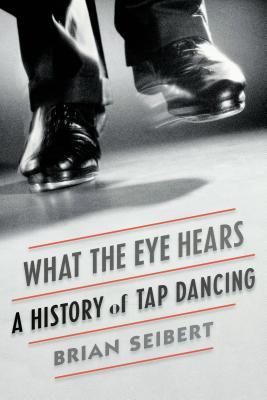The first authoritative history of tap dancing, one of the great art forms--along with jazz and musical comedy--created in America
What the Eye Hears offers an authoritative account of the great American art of tap dancing. Brian Seibert, a dance critic for The New York Times, begins by exploring tap's origins as a hybrid of the jig and clog dancing and dances brought from Africa by slaves. He tracks tap's transfer to the stage through blackface minstrelsy and charts its growth as a cousin to jazz in the vaudeville circuits. Seibert chronicles tap's spread to ubiquity on Broadway and in Hollywood, analyzes its decline after World War II, and celebrates its rediscovery and reinvention by new generations of American and international performers. In the process, we discover how the history of tap dancing is central to any meaningful account of American popular culture.

The first authoritative history of tap dancing, one of the great art forms--along with jazz and musical comedy--created in America
What the Eye Hears offers an authoritative account of the great American art of tap dancing. Brian Seibert, a dance critic for The New York Times, begins by exploring tap's origins as a hybrid of the jig and clog dancing and dances brought from Africa by slaves. He tracks tap's transfer to the stage through blackface minstrelsy and charts its growth as a cousin to jazz in the vaudeville circuits. Seibert chronicles tap's spread to ubiquity on Broadway and in Hollywood, analyzes its decline after World War II, and celebrates its rediscovery and reinvention by new generations of American and international performers. In the process, we discover how the history of tap dancing is central to any meaningful account of American popular culture.